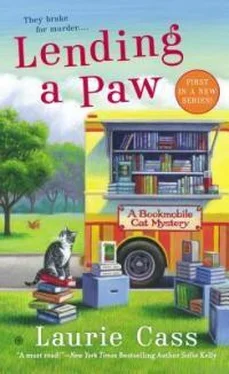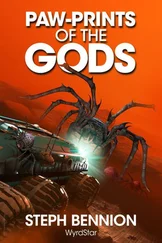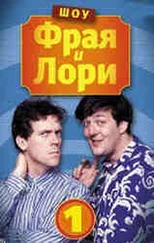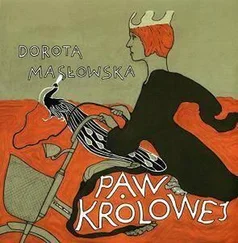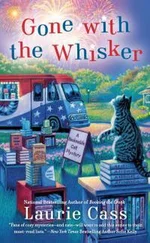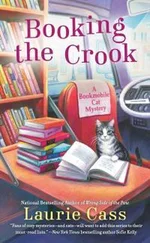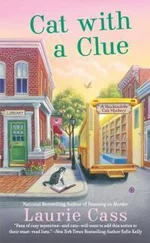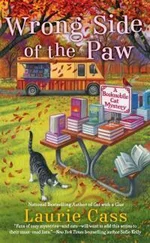Since I wasn’t completely ignorant of boat maintenance issues, I could see where this was going. “It’s electrical, isn’t it?”
“Got to be,” Chris said cheerfully.
“How much is it going to cost?”
“Well, that’s the bad news.”
I squinched my eyes shut and slapped my hands over my ears. “Don’t want to hear it, don’t want to hear it—”
Chris spoke loudly. “I got another set of good and bad newses.” I uncovered my ears and waited. “Bad first. Job like this on a boat like this, we’re looking at five hours if it’s easy, double that, or more, if it’s not.”
My chest went tight. Five hours of a boat mechanic’s time was equivalent to slightly less than a week of the Chilson District Library assistant director’s take-home pay. Ten hours was an amount that would require payments on my credit card for longer than I wanted to think about. My student loans were far from being paid off, my car wouldn’t be paid off for almost two years, and the houseboat loan was—
“Hey, don’t look like that,” Chris said. “You haven’t heard my good news.” He lowered his top half deeper into the engine compartment and his voice came out echoey, in a disembodied sort of way. “Rafe Niswander could do the work for you a lot cheaper.” His right hand extended up into the air. “Hand me those wire cutters, will you, Min Pin? Thanks. Yeah, Rafe used to work here, summers. He’s got those long skinny fingers that fit into tight corners no one else could reach without pulling the freaking engine.”
I’d never noticed that Rafe had long skinny fingers. I would now, though.
“But you know Rafe,” Chris said. “You’d have to work with his schedule. And he’s got that thing going with his arm right now. He says it’s good, but if it’s that good, why is he still wearing that ratty old bandage?”
Rafe. I grumped a grumpy noise to myself. Anyone with half an ounce of sense would have changed the bandage daily. Not Rafe. Oh, no, not oh-it’ll-be-fine-quit-worrying Rafe. The man needed a wife something fierce, but I couldn’t think of any woman I disliked enough.
Another couple minutes, and Chris pushed himself out into the sunlight. “There you go. All shipshape and seaworthy.”
Seaworthy I didn’t care about. “Is it lakeworthy?”
“Well.” Chris scratched his bristly chin with the end of a Phillips screwdriver. “I wouldn’t take her out on the big lake, but she’s probably okay for a one-cocktail cruise out there.” He pointed the screwdriver out at Janay Lake.
“How about tied up to the dock?”
He started putting his tools back into the red toolbox he’d brought with him. “If nothing changes, you might be fine for the season. But you know boats.”
Wind gusted my hair into my face and I reached into my shorts pockets for a hair elastic. My too-curly hair never wanted to stay in a ponytail, but better that than have my hair blowing into my mouth every time I tried to talk.
As he tidied his tools, he said, “Hey, did I tell you we’re full up?” He went on to list, slip number by slip number, the people who were up north already, the people who would be up for the Fourth of July, and the people who paid to have their boats put in the water but who rarely made it up at all.
I sat there, half listening, half not, enjoying the wind and sun on my face. Then something he said caught at me. I asked, “Did you say the Olsons wouldn’t be up until the Fourth?”
“Well, yeah. They never are.”
“But I saw some lights on board a couple of weeks ago.”
Chris was shaking his head. “Couldn’t be. There hasn’t been a car in their parking space all summer. Besides, he always calls and has me run a shakedown the week before they get here.”
He had to be right. Chris knew the marina and its inhabitants better than I knew the contents of my own closet. But still . . . “I saw lights.”
“Okay, you saw lights.” He clipped the toolbox shut and stood. “And Skeeter still says he saw a cougar up in the hills above town last year. See you later, Min-ster.” He reached out to pat me on the head with his greasy hand.
I ducked away. “Yeah, yeah. Thanks for coming over, Chris. I’ll talk to Rafe about the wiring, if you don’t mind.”
“Hey, why should I care? I like taking care of your boat, but your paycheck ain’t exactly like that one’s.” He tipped his head in the direction of Olson’s boat. “Or their pension.” He nodded at Ted and Louisa’s boat. “You’re okay, even if you’re not from here.” He grinned again, got one pat on my head before I could dodge it, and headed off.
I sat there, elbows on my knees and chin in my hands. I had seen lights on Gunnar Olson’s boat. I’d been studying the angles and there was no way I could have confused the beams from his looming boat with anything else.
But, really, who cared? It wasn’t any of my business if Gunnar or his wife had snuck up north for a quiet weekend. I yawned and pushed myself to my feet, then stopped cold.
The lights. I’d seen the lights on Gunnar’s boat the night Stan was killed.
• • •
Sunday was a quiet day at the library. We had afternoon hours only, from one until five. During the school year, most of the patrons were middle and high school students ostensibly working on homework. During the summer, the patrons were either parents looking to entertain their children, summer folks stocking up on a week’s reading, or tourists who wanted a tour of the library. Sundays in the library felt like a Sunday, somehow, and working hardly felt like working at all.
There was one consistency, however, winter, spring, summer, or fall, Sunday, Monday, Tuesday, or any other day of the week.
Mitchell Koyne.
He’d started an inane conversation on Sunday, put it on hold when I shooed him out at closing, and continued it Monday afternoon when he walked into the lobby, dripping rain off his baseball hat, shirtsleeves, pant legs, and fingertips.
I spotted him as I was walking from the reference desk to my office, a stack of books and papers under each arm.
“Hey, Minnie,” he said. “I think I figured out what we should do if we get a hurricane. It all depends on the direction of the wind, of course, and since the only way we’d get a hurricane is if it came up the St. Lawrence Seaway—hurricanes die out over land, you know, so it’d have to—”
“Paper towels,” I told him.
“For a hurricane?”
“Go into the men’s room and dry yourself off with paper towels.”
“Nah, I’m good.” He shook himself like a dog and sprayed water all over the floor, a freestanding sign announcing the summer reading club, and me. “See?” He grinned, not seeing or not caring about the water droplets on my face, arms, hair, and, far, far worse, the books I was holding. “Now,” he said, “if you look at a map, you’ll see that . . . Hey, Minnie, where are you going? I got this all figured out. Minnie?”
I retreated in the direction of my office, ignoring Mitchell’s calls. There were days when Mitchell was interesting and a treat to talk to. Other days, it was front desk scramble to see who got stuck with him.
As I passed the open doorway to the break room, there was a reverberating crash of splintering china and splashing liquid. I peeked in the room and saw Holly standing with her hands to her mouth. Her wide gaze flashed to me, darted behind me, then dipped back to the monstrous mess on the floor.
“What did she do this time?” Josh shouldered past me. “Oh, great. Coffee. Nice. All sugared up, I bet. That’ll be nice to clean up. Who’s going to do it for you this time?”
“Josh,” I said sharply. “It’s just a cup of coffee.”
He snorted. “Cup of coffee today. The other day it was a whole pot. Bam! Coffee over the counters, over the floor, it even got in the refrigerator. Princess over there was too upset to clean it up, so guess who got volunteered?” He thumped his chest.
Читать дальше
